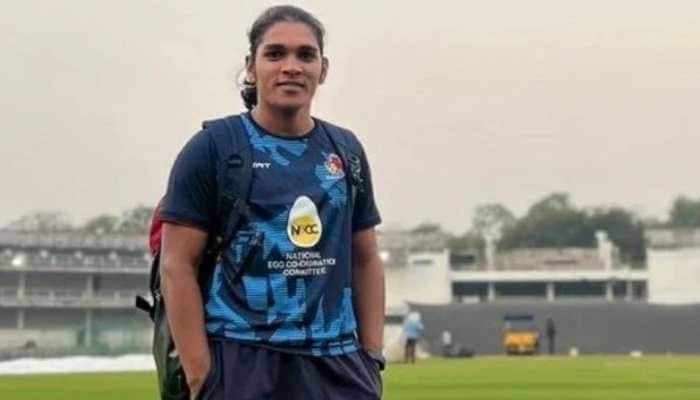Corporal punishment strikes again
Hitting school children is just not waning in India.
Trending Photos
)
Ankita Chakrabarty/ Zee Research Group
On Teachers Day this year vice principal of a school hit a class IV student in West Bengal. It seems hitting school children for disciplining them is just not waning in India. Are teachers perceived as nation builders’ hell bent to stick to ‘spare-the-rod-spoil-the-child’ philosophy in classrooms across the country?
Among all states, however, West Bengal’s teachers have earned a dubious reputation for employing such draconian methods of discipline. Remember, Rouvanjit Rawla case of February 2010.
In July this year, a class V student of the Visva-Bharati University`s Patha Bhavan was allegedly forced to drink her own urine by the warden as she had wet her bed while in the latest instance the vice–principal of Don Bosco School allegedly hit a Class IV student with a can of foam spray which the child was carrying in order to decorate the classroom.
Unending spate of incidents related with corporal punishments give credence to fears that enough is not being done by the government to permanently stamp out the scourge from our schools. The NCPCR has received 570 complaints altogether of beating, harassment, humiliation, sexual exploitation in schools across the country since its inception in 2007. Further, a detailed state-wise analysis reveals that Tamil Nadu followed by Delhi and Uttar Pradesh are the worst performers with maximum number of complaints of corporal punishments. Tamil Nadu followed by Delhi and Uttar Pradesh recorded 115, 105 and 99 cases respectively.
While there are laws to deal with the menace, enforcement persists as a key challenge. Corporal punishment is prohibited under Section 17 (1) of the Right of Children to Free and Compulsory Education (RTE) Act, 2009. Section 17 (2) of the Act also provides that whoever contravenes the provisions of sub-section (1) shall be liable to disciplinary action under the service rules applicable to such persons.
National Commission for Protection of Child Rights (NCPCR) issued guidelines on March 5, 2012 to eliminate corporal punishment in schools. The guideline has considered physical punishment, mental harassment and discrimination of children causing both physical and mental harassment as corporal punishment. In every case of violence against children, the respective department/board has to conduct an independent investigation, thus taking responsibility for what goes on in school and not rely simply on enquiries conducted by the school.
The state government is responsible to constitute/designate a city/district level committee to receive the complaints of physical punishments, mental harassments and discrimination in schools and redress them within reasonable time.
Emphasising the government policies in place, Vinod Kumar Tikoo, member at the National Commission for Protection of Child Rights (NCPCR) said, “The guidelines have been issued and action of any kind depends on the gravity of the situation. If the child is physically harmed, the case will go to the state authority and the criminal angle will be probed. The police will also take terminal action against the culprit.”
Education experts attributed the stubborn attitude of the teachers as the principal reason behind unending use of corporal methods of disciplining. Dr RK Sharma, principal at Ahlcon Public School, Delhi and also a member of the committee which drafted guidelines to eliminate corporal punishment in schools said, “Students should be dealt with dignity and honor. A teacher fails in his mission as soon as he/she inflicts physical pain upon a child.”
Civil society organisations working in this field stress on bringing a change in mindset of teachers. Shikha Pal, assistant manager of formal school education at Deepalaya (a non–profit organisation) working in the areas of school education said, “Purposely inflicting pain upon a child in the name of disciplining is not at all acceptable. Punishment demoralises a child and it hampers the mental growth of a child.”
Suggesting measures to curb the menace, Sharma at Ahlcon Public School said, “Cases which are happening are actually occurring in far flung areas. Teachers also need counseling and advice from experts to deal with children.”
Regular counseling of teachers and students will definitely help in wedding out the menace. In addition, it will nurture better teacher-student ties. “Children need love and affection. If a child has a problem, it is extremely pivotal to reach out to the child, engage in one to one dialogue and sort out the issue,” added Pal at Deepalaya.
Stay informed on all the latest news, real-time breaking news updates, and follow all the important headlines in india news and world News on Zee News.
Advertisement
Live Tv
Advertisement







)
)
)
)
)
)
)
)
)
)
